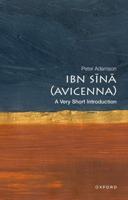Publisher's Synopsis
The most important distinctively American contribution to philosophy is the pragmatist tradition. In this short, lucid, and completely convincing exposition, Professor John P. Murphy explores the roots of this tradition as found in the work of Peirce, James, and Dewey, demonstrating its power and originality. Historians of philosophy will appreciate the insight Murphy brings to these figures, but the special value of this book lies in his discussion of how the pragmatist spirit has flowered in contemporary philosophy in the work of Quine, Rorty, and Davidson. Throughout, Murphy emphasizes the logic and structure of the views held by these six philosophers and what it is they have in common that makes their work especially pragmatist. The most important distinctively American contribution to philosophy is the pragmatist tradition. In this short, lucid, and completely convincing exposition, Professor John P. Murphy begins by exploring the roots of this tradition as found in the work of Peirce, James, and Dewey, demonstrating its power and originality.;Historians of philosophy will appreciate the insight Murphy brings to these figures, but the special value of this book lies in his discussion of how the pragmatist spirit has flowered in contemporary philosophy in the work of Quine, Rorty, and Davidson.Throughout, Murphy emphasizes the logic and structure of the views held by these six philosophers and what it is they have in common that makes their work especially pragmatist. There is no better introduction to this historical tradition and perhaps no better way into the philosophies of the contemporaries whom Murphy discusses.Interest in pragmatist ideas is undergoing a revival at present, and this book shows us why. It will be of interest to both historians of philosophy and students of contemporary philosophy.










